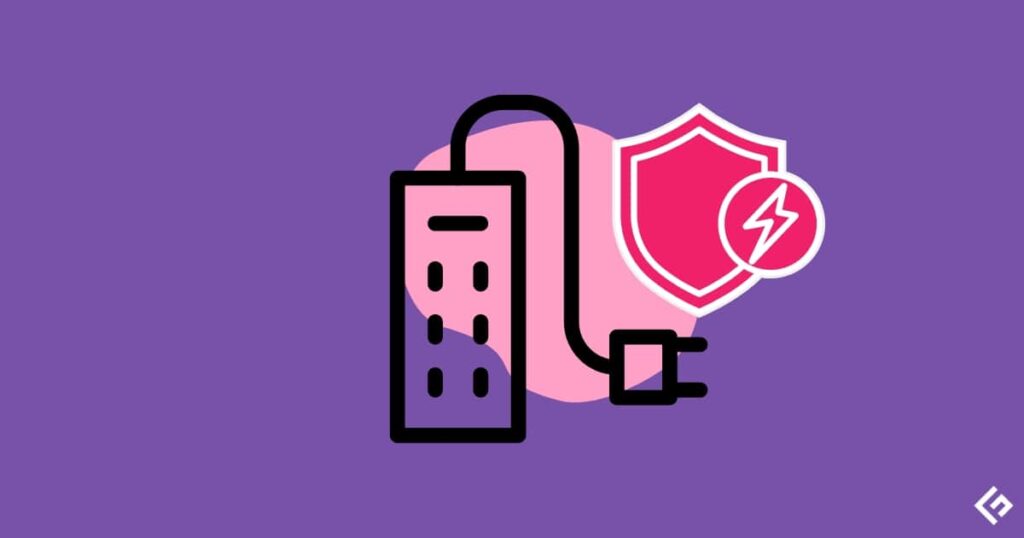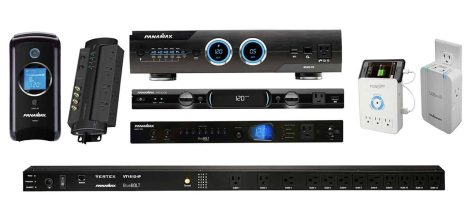Home theatres take your entertainment thrill to a new level. A home theatre recreates the magic of theatre halls, giving you the same sound and visual effect within the comfort of your home. However, to enjoy the thrilling experience, you have to buy expensive electronics such as a projector, a subwoofer, AV receiver, speakers and other equipment.
These setups are complex and delicate and hence, regular monitoring is important for potential issues. Power fluctuations usually happen during storms or while upgrading the electric system in one’s house. These can cause heavy damage to expensive components of a home theatre power manager system.
Therefore, you should always make sure that your home theatre gets continuous power from surge protectors or generators that can prevent all sorts of damages requiring expensive repairs. A home entertainment power management system gives you peace of mind that the home theatre will always stay safe and sound.
What Does A Home Theatre Power Manager Do?
A home theatre power manager safeguards your home theatre from voltage fluctuations. There are several advantages of having a home theatre power manager. It protects expensive audio, video and other essential home theatre equipment from voltage fluctuations that may inflict damages on expensive home theatre components.
Another advantage of using a power manager is it converts problematic electrical signals into clear, stable, pure and noise-free energy.
A power manager improves each device’s performance and extends its lifespan. The system delivers improved visuals and sound quality and functions as a safer power source for your entertainment unit. Additionally, the power manager cuts down overall power consumption by ensuring adequate power supply for a particular device.
What Are The Advantages of A Power Manager?
Home theatre power managers help protect expensive electronics of your home entertainment system. It ensures uninterrupted and safe power supply for your equipment. It cuts down on noise in your sound system as well.
It could be your computer, TV or other appliances, but installing a home theatre energy saver can significantly reduce spike and surge-related risks, while ensuring improved operational efficiency.
With a home theatre power manager, you will have complete control of up to 8 devices and it will relieve you from the worries of multiple power adapters and messy wiring. Moreover, this system streamlines managing cables and other wires when all the equipment runs off a single energy source. Hence, a home theatre power manager is a wise investment to improve your audio-visual experience.
Can You Do Without A Power Manager for Your Home Theatre?
It depends on where you live. If you live in an area that can boast of an uninterrupted power supply of regulated electricity, a power manager is not a necessity.
If your area suffers frequent disturbances in power supply, it is essential to have a solid layer of protection to overcome potential power disruption that may damage or even destroy your home theatre system.
A home theatre filters out dirty power and ensures filtered sound, resulting in smooth and efficient running of your home theatre system. It will improve your speakers’ sound quality and also protect your system from dirty electricity that may cause costly damages.
A home theatre power manager brings you clearer, crispier, smoother and better quality audio output. It also guarantees that your equipment won’t suffer any unexpected breakdown. This is why you should consider investing in a home theatre setup. It can save your money, effort and time while making sure that you will enjoy an uninterrupted, satisfying entertainment experience.
How Can A Power Manager Affect Audio Quality?
A power manager ensures regular power supply to your home theatre. In normal conditions, it won’t affect audio quality. Speakers may pick up and amplify background noises. The low-level noise usually produces humming and causes interference that can degrade overall sound quality.
Sometimes, power managers of home theatres filter out too much noise, reducing sound quality. Therefore, it’s usually recommended to test how a power manager can affect the audio, before deciding if you really need it.


